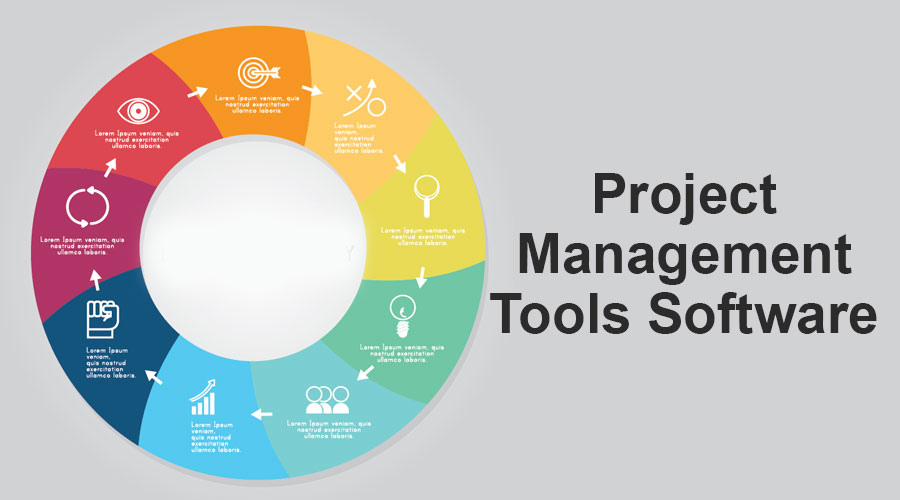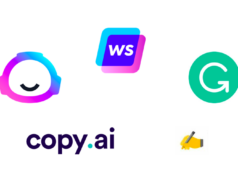Essential Project Management Software: 5 Game-Changing Tools for Teams
Related Articles: Essential Project Management Software: 5 Game-Changing Tools for Teams
- Essential Antivirus: 5 Crucial Factors For Choosing The Best Protection
- Amazing 7 Language Learning Apps That Conquer All Levels
- Essential 7 Video Editing Tools Every Filmmaker Must Master
- 5 Amazing Note-Taking Apps To Supercharge Your Productivity
- Amazingly Powerful: 5 Top Graphic Design Software Choices For Beginners
Introduction
In this auspicious occasion, we are delighted to delve into the intriguing topic related to Essential Project Management Software: 5 Game-Changing Tools for Teams. Let’s weave interesting information and offer fresh perspectives to the readers.
Table of Content
Essential Project Management Software: 5 Game-Changing Tools for Teams

Project management is the backbone of any successful team. Whether you’re launching a new product, executing a marketing campaign, or simply coordinating daily tasks, effective project management is crucial for staying organized, on schedule, and within budget. However, managing projects effectively without the right tools can quickly become overwhelming, leading to missed deadlines, frustrated team members, and ultimately, project failure. This is where project management software steps in, offering a powerful solution to streamline workflows, enhance collaboration, and boost overall team productivity. This article will explore five essential project management software options, highlighting their key features and helping you choose the best fit for your team’s specific needs.
The Importance of Choosing the Right Software
Before diving into specific software options, it’s important to understand why choosing the right project management software is so vital. The right software can significantly improve several key aspects of your project management process:
-
Improved Collaboration: Centralized platforms facilitate seamless communication and collaboration among team members, regardless of their location. Features like shared calendars, real-time updates, and integrated communication tools ensure everyone is on the same page.
-
Enhanced Task Management: Software provides tools for creating, assigning, tracking, and prioritizing tasks, ensuring nothing falls through the cracks. Features like Gantt charts, Kanban boards, and task dependencies help visualize project progress and identify potential bottlenecks.
-
Increased Efficiency: Automating repetitive tasks, streamlining workflows, and providing real-time visibility into project status significantly improves team efficiency and reduces wasted time.

Better Resource Allocation: Many project management software solutions offer resource management features, helping you allocate your team’s time and skills effectively to optimize project delivery.
-
Improved Accountability: Clear task assignments, deadlines, and progress tracking foster accountability and ensure everyone is responsible for their contributions.
-
Reduced Risks: By providing a clear overview of project progress and potential risks, software helps teams proactively identify and address challenges before they escalate.
-
Data-Driven Decision Making: Project management software collects valuable data on project performance, allowing you to analyze trends, identify areas for improvement, and make data-driven decisions to optimize future projects.
5 Game-Changing Project Management Software Options
Now, let’s delve into five powerful project management software options that cater to various team sizes and project complexities:
1. Asana: Asana is a highly popular and versatile project management tool known for its user-friendly interface and robust feature set. It caters to teams of all sizes, from small startups to large enterprises. Asana offers a variety of views, including lists, boards (Kanban), timelines (Gantt charts), and calendars, allowing teams to choose the view that best suits their workflow. Its strong collaboration features include task assignments, comments, file sharing, and integration with other popular applications like Slack and Google Drive. Asana’s free plan is suitable for smaller teams, while paid plans offer advanced features like custom fields, advanced reporting, and team-specific workspaces. The platform’s strength lies in its flexibility and adaptability to different project management methodologies.
2. Trello: Trello is a visually appealing and highly intuitive project management tool based on the Kanban methodology. Its simplicity and ease of use make it a popular choice for teams new to project management software. Trello uses cards to represent tasks, which can be moved across different columns (representing project stages) to track progress. Its visual nature makes it easy to understand project status at a glance. Trello offers excellent collaboration features, including comments, attachments, and due dates. While its free plan is sufficient for smaller teams, paid plans provide additional features such as custom fields, advanced power-ups (integrations), and increased storage capacity. Trello’s strength is its simplicity and visual appeal, making it a great option for teams who prioritize ease of use.
3. Monday.com: Monday.com is a highly customizable and visually engaging project management platform that allows teams to tailor their workflows to their specific needs. Its drag-and-drop interface and customizable dashboards make it easy to track progress and manage tasks. Monday.com offers a wide range of features, including Gantt charts, Kanban boards, timelines, and customizable views. It also boasts robust automation capabilities, allowing teams to automate repetitive tasks and workflows. Monday.com’s extensive integrations with other applications enhance its functionality and streamline workflows. While its free plan is limited, its paid plans offer a comprehensive suite of features suitable for teams of all sizes. The platform’s strength lies in its flexibility and powerful automation capabilities.
4. Jira: Jira is a powerful project management and issue tracking tool widely used by software development teams. While it might seem initially complex, its robust features and adaptability make it a valuable asset for managing complex projects, particularly in agile environments. Jira offers various project management methodologies, including Scrum and Kanban, and provides features like sprint planning, burndown charts, and issue tracking. Its integration with other Atlassian products, like Confluence (for documentation) and Bitbucket (for code repository), enhances its value for software development teams. Jira’s extensive customization options allow teams to tailor the platform to their specific needs. However, its complexity might be overwhelming for teams unfamiliar with agile methodologies. Its strength lies in its powerful features and comprehensive support for software development workflows.
5. Microsoft Project: Microsoft Project is a long-standing and established project management software solution integrated within the Microsoft ecosystem. It offers a comprehensive set of features, including Gantt charts, resource management, cost tracking, and risk management. Its strength lies in its detailed planning and control capabilities, making it suitable for managing large and complex projects. However, its interface can be considered less intuitive compared to some of the other options, and its cost can be a barrier for smaller teams. The software’s integration with other Microsoft products makes it a seamless choice for organizations heavily invested in the Microsoft ecosystem. Its strength is its powerful features and robust reporting capabilities for detailed project analysis.
Choosing the Right Software for Your Team
Selecting the right project management software depends on several factors:
-
Team Size and Structure: Smaller teams might find simpler tools like Trello or Asana sufficient, while larger teams might benefit from the more comprehensive features of Monday.com or Jira.
-
Project Complexity: Simple projects might only require basic task management features, while complex projects might need more advanced features like resource allocation, risk management, and reporting.
-
Budget: Free plans are available for many tools, but paid plans often offer more features and storage capacity.
-
Integration Needs: Consider the software’s integration with other tools your team uses, such as communication platforms, file storage services, and other applications.
-
User Experience: Choose a software with a user-friendly interface that your team will find easy to learn and use.
By carefully considering these factors and exploring the features of the software options outlined above, your team can choose the project management tool that best fits its needs and empowers it to achieve its goals efficiently and effectively. Investing in the right project management software is an investment in your team’s productivity and success. The benefits far outweigh the initial cost and effort, leading to improved collaboration, increased efficiency, and ultimately, the successful delivery of your projects.
Closure
Thus, we hope this article has provided valuable insights into Essential Project Management Software: 5 Game-Changing Tools for Teams. We thank you for taking the time to read this article. See you in our next article!
google.com








